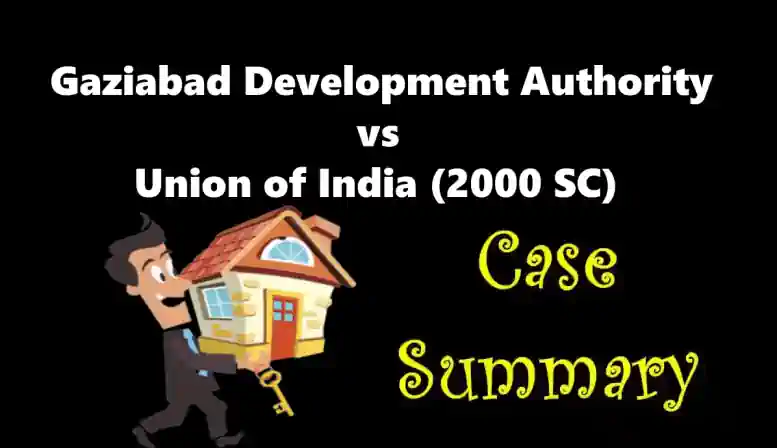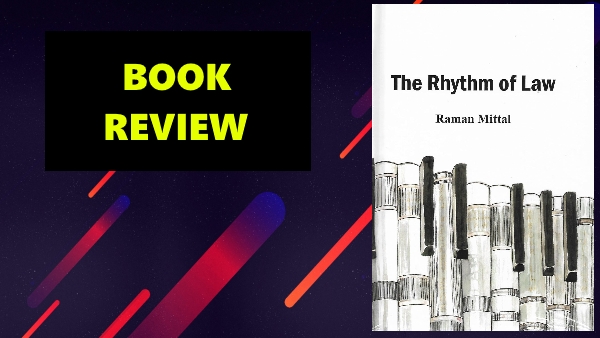GHAZIABAD DEVELOPMENT AUTHORITY vs UNION OF INDIA Case was filed for the breach of contract. The law of contract was based on the principle of agreements must be kept. The provisions of breach of contract are covered under the Indian Contract Act, 1872, and the Specific Relief Act.
BENCH
Honorable Justice R.C. Lahoti
Honorable Justice S.R. Babu
RELEVANT ACT
Monopoly and Restrictive Trade Practices Act, 1969
RELEVANT SECTION
Article 14 and 226 of Constitution of India, 1950
Section 34 of Code of Civil Procedure, 1908
Section 73 and 74 of the Indian Contract Act, 1872
FACTS OF THE CASE
- There was a scheme announced by the Ghaziabad Development Authority for the allotment of developed plots under the Indirapuram Scheme.
- The claimant was informed by the authority that a plot of 35 sq. meters was reserved for them for which the estimated cost was Rs. 4,20,000/- and same was payable in specified installments.
- The plot allotment was also informed by the authority. Later on the claimants were informed that there had been a delay in handling over the possession of plot because of some unavoidable reasons.
- After waiting for so long the claimants approached to MRTP Commission.
ISSUES PRESENTED BEFORE THE COURT
Whether compensation can be awarded for mental agony suffered by the claimants?
Whether in any absence of contract held by authority liable to pay the amount with interest to the claimants?
BEST BOOK FOR CONTRACT LAW: Contract Law by RK Bangia (Latest Edition)
RATIO DECIDENDI
The Court observed that the scheme for allotments of plots by the authority was public information, i.e. invitation to offer. A lot of public members made applications for this scheme. Such applications are treated as offers and some offers are accepted subject to the rules of priority, which results in a contract between authority and applicant.
The legal relationship of performance and consequences of a breach would be sought under the Indian Contract Act, 1872 and Specific Relief Act except for the law applicable to the Authority in the floating scheme. In Breach of contract, damages may be claimed by one party from the other party who broke its contractual obligation. These can be in form of liquidated or unliquidated damages. Here the rule of remoteness damages will come into play. The party will be held liable for compensation only when such losses directly flow from its breach.
Normally no damages are awarded in the contract for injury to the plaintiff’s feeling or mental agony caused by a breach of contract. There was an exception limited to a contract whose performance is to provide peace of mind or freedom from distress. Damages may also be awarded if the plaintiff suffered from any nervous shock.
Further, the Court observed that there was no contract between the parties for payment of interest on delayed deposits or on account of delay on the opposite party for rendering the services. Hence interest cannot be claimed under section 34 of the Code of Civil Procedure, 1908 because it does not make provisions specifically applicable to these proceedings under the act. Thus Section 34 of the Code of Civil Procedure, 1908 would allow the Redressal Forums and Commissions to grant interest appropriately under the circumstances of each case by being based on justice, equity, and good conscience. Therefore, interest can also be awarded on fairgrounds.
INDIAN CONTRACT ACT, 1872 (Bare Act) (Latest Edition)
DECISION
The MRTP Commission Forum held the claimants were entitled to an amount of Rs. 50,000/- payable as compensation for the mental agony suffered by complainants upon failure of Authority to not hand over the possession of plot as promised.
CIVIL APPEAL
In Civil Appeal, it was held that the directions are given by MRTP Commission for payment of RS. 50,000/- for mental agony suffered by claimants were set aside. The claimant is entitled to allotment of plot. Another option was given to the claimant if he refuses to take the plot in terms of direction made by the Commission he will be entitled to a refund of the amount deposited by him with the interest rate of 18 percent per annum from the deposit of the various amounts by the claimant. Before the hearing of this, there was the possibility of a claim being settled by allotting an alternative plot to the claimant but the claimant rejected the same as it was in a deserted place and highly priced. Therefore, the direction of the Commission for a refund of the amount shall stand though at 12 percent and not 18 percent.
Hence all the appeals and contempt petitions stand disposed of accordingly. No orders as to the costs.






